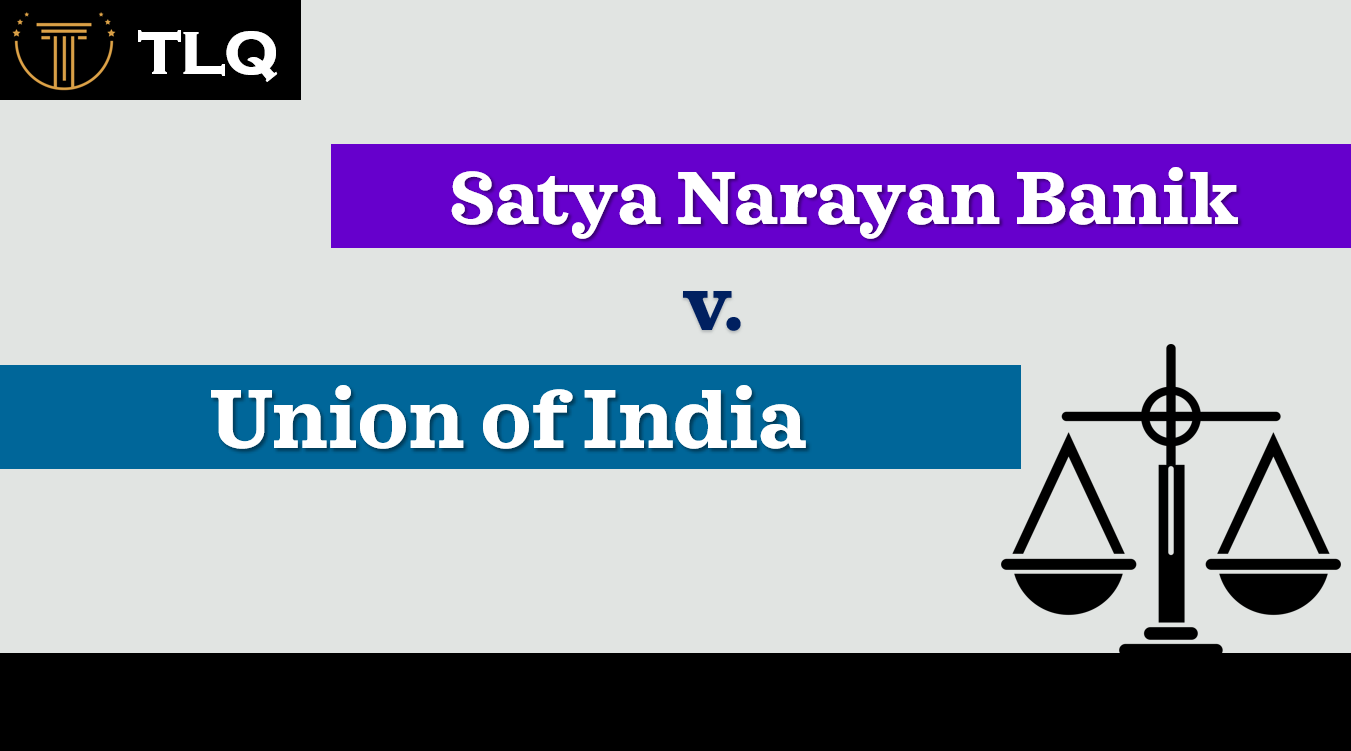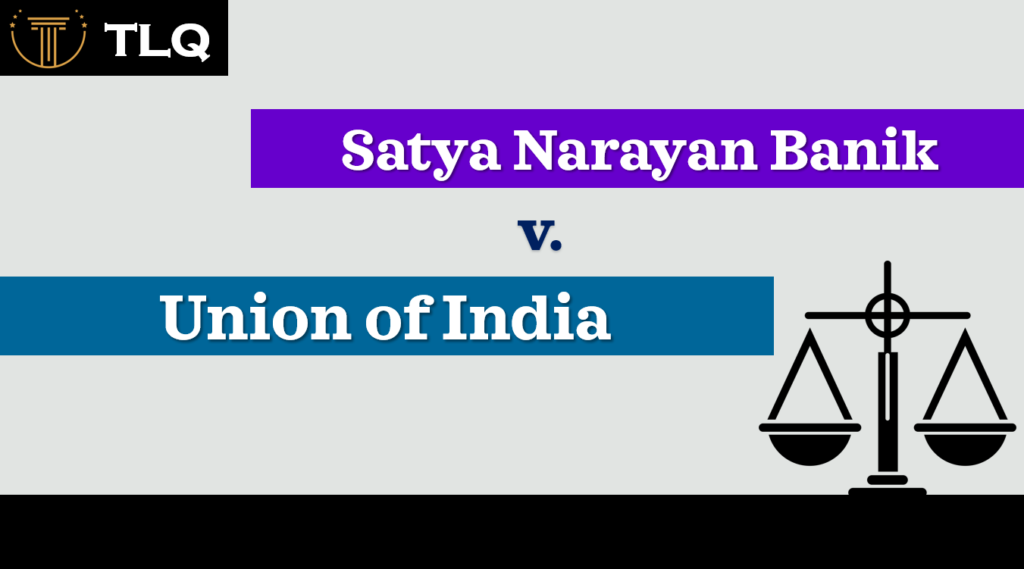Published On: 25th May, 2024

Authored By: Rohit Kumar
Jannayak Chandrashekhar University, Ballia (U.P)
Satya Narayan Banik v. Union of India case [1]
key legal issues:
Satya Narayan Banik v. Union of India’s facts are purely on the legal points about the disqualification of directors through Section 164(2) of the Companies Act, 2013. What are the major legal questions in this case?
- Disqualification of Directors: The impugned case deals with the disqualified directors for not filing balance sheets and annual returns continuously for three years from 2014-15 under section 164 (2) of the Companies Act, 2013 [2]. Calcutta High Court upheld this disqualification saying that it is aimed at maintaining probity and the highest standard of governance in both private and public companies.
- Automatic Deactivation of DIN: The petitioners argued that their Director Identification Number became deactivated immediately by the Registrar of Companies upon their disqualifications. The court held that disqualification from directorships under Section 164(2) of the Companies Act does not lead to automatic deactivation of DINs
- Prior Notice for Disqualification: In this regard, petitioners maintained that no prior notice was given to them before they got disqualified, but the court observed that since it is a question as to whether or not any discretion can be exercised by such authorities because if one looks at section 164(2), it seems from a plain reading that these grounds are mandatory.
- Public Interest: In the company’s activities, including its financial aspects and social responsibility, the court stressed the importance of good governance, transparency, and high standards of probity. It said that the requirements and compliances imposed under the Companies Act are not only for the benefit of shareholders’ companies but also in essence relating to the public at large which expects such compliances to evaluate their behaviors with these corporations.
These legal issues emphasize non-compliance with provisions contained in the Companies Act 2013 as well as reasons why transparency, probity, and good governance should be maintained.
Facts:
The case reference is Satya Narayan Banik v. Union of India where directors M/s. Hahnemann International Pvt. Ltd were relieved of their duties due to disqualification under Section 164(2) for failure to file balance sheets and annual returns for three consecutive years. The grounds on which petitioners disputed this disqualification included: the denial of “Company’s Fresh Start Scheme of 2020,” failure to grant a prior hearing prior to disqualification, and questioning the Registrar of Companies’ authority on deactivation of their Director Identification Numbers (DIN). Respondents submitted that mere explanations provided against non-filing did not hold water since they stated, citing the responsibility given to an accountant who failed to file the documents. The case also references various legal precedents and arguments related to the disqualification of directors under the Companies Act.
Judgement:
The case of Satya Narayan Banik v. Union of India pertains to the grievance by the petitioners over their removal as directors of M/s. Hahnemann International Pvt. Ltd. The grounds for this disqualification were non-filing of balance sheet and annual return continuously for a period of three years, from the year 2014-15, which resulted in operation of Section 164 (2) of the Companies Act, 2013 and Registrar of companies deactivating the Director Identification Number (DIN) by the petitioners who took exception.
The petitioners based their opposition to disqualification on three areas:
- Despite making an application, they were not allowed to take advantage of the “Company’s Fresh Start Scheme” in 2020.
- They had no prior notice before being disqualified hence breaching principles of Natural Justice.
- The Registrar of Companies has no power to deactivate DINs, nor are they automatically activated.
In its judgment, it referred to a number of cases including M. K. Meethelaveetil Kaitheri Muralidharan v. Union of India, Jai Shankar Agrahari v. Union of India, and Imraj Ali Molla v. Union of India and Ors., in support of the respondents’ arguments.
The respondents argued that there was no other directorship held by anyone petitioner. This is not true since filing was not done because they were not convincing. The petitioners had left the job of filing returns and balance sheets to an accountant, Moinak Kundu, who did not file them. The petitioners did not disclose any action taken against the accountant, nor did they provide a satisfactory explanation for the delay in filing the annual returns and balance sheets.
The court held that the petitioners are disqualified under the “ Company’s Fresh Start Scheme of 2020 ” and did not avail themselves of the benefit and were not given a prior hearing, but the judgment does not answer the question of D.I.N deactivation.
Impact of the case:
In general, this case demonstrates the importance of compliance with the law and directors’ obligations. As mentioned in the judgment, “ Company law in India mandates a very high degree of diligence and adherence to statutory compliances”. Thus, it is clear that company directors must comply with shareholding and financial regulations, and it also notes the importance of good corporate governance, transparency, and, the protection of interested investors.
References:





